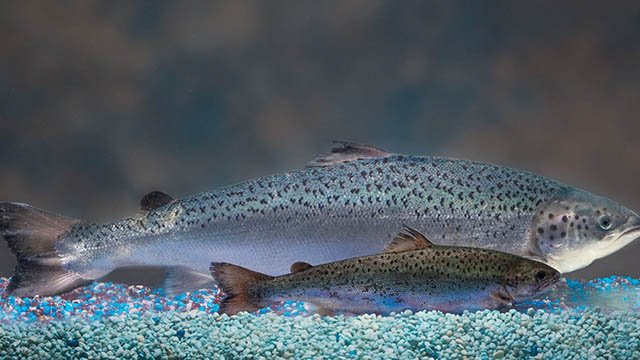Americans are one step closer to seeing genetically modified salmon at their grocery stores.
The Food and Drug Administration announced Friday that it is lifting an import alert that stopped genetically engineered salmon from entering the U.S.
The salmon, called “Frankenfish” by some, won FDA approval in 2015 — the first approval of a genetically engineered animal intended for food. The FDA, after years of review, had deemed food from the AquaAdvantage Salmon safe to eat in 2015 and said there is no biological difference between these salmon and nongenetically engineered salmon.
But Congress blocked the FDA in 2016 from allowing the fish to be sold in the U.S. until it finalized labeling guidelines to inform consumers the product was genetically engineered. The FDA then went ahead and implemented the import alert.
Congress also passed a law that year directing the Department of Agriculture to set a national mandatory standard for disclosing bioengineered foods. In December, the USDA issued the standard, requiring manufacturers, importers and certain retailers to disclose whether a product was bioengineered using either text, a symbol, a electronic or digital link, and/or a text message.
On Friday, FDA Commissioner Scott Gottlieb said because of the 2016 law and the USDA’s standard, his agency “no longer has the authority to issue labeling guidance.”
“However, the FDA believes this Congressional mandate has been satisfied by the USDA’s issuance of final regulations implementing that law in late 2018 because the law and regulations require that human food containing GE salmon bear labeling indicating that it is bioengineered,” Gottlieb said in a statement.
The FDA will now allow AquaAdvantage salmon eggs, produced by AquaBounty, to be imported to the company’s land-based facility in Indiana and raised into salmon for food. The AquaAdvantage salmon grows year-round and grows faster than farm-raised Atlantic salmon.


